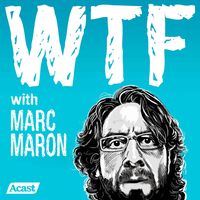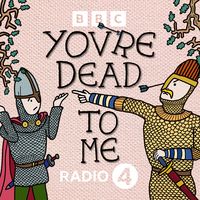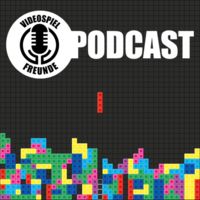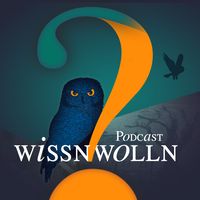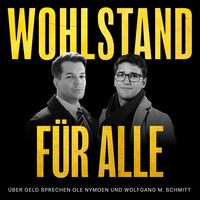The Cold War, Prohibition, the Gold Rush, the Space Race. Every part of your life - the words you speak, the ideas you share - can be traced to our history, but how well do you really know the stories that made America? We'll take you to the events, the times and the people that shaped our nation. And we'll show you how our history affected them, their families and affects you today. Hosted by Lindsay Graham (not the Senator). From Wondery, the network behind American Scandal, Tides of History, American Innovations and more.You can binge new seasons of American History Tellers early and ad-free on Wondery+. Join Wondery+ in the Wondery app or on Apple Podcasts.
https://wondery.com/shows/american-history-tellers/?utm_source=rss
Gesamtlänge aller Episoden: 9 days 10 hours 17 minutes
recommended podcasts
- season 1
- season 2
- season 3
- season 4
- season 5
- season 6
- season 7
- season 8
- season 9
- season 10
- season 11
- season 12
- season 13
- season 14
- season 15
- season 16
- season 17
- season 18
- season 19
- season 20
- season 21
- season 22
- season 23
- season 24
- season 25
- season 26
- season 27
- season 28
- season 29
- season 30
- season 31
- season 32
- season 33
- season 34
- season 35
- season 36
- season 37
- season 38
- season 39
- season 40
- season 41
- season 42
- season 43
- season 44
- season 45
- season 46
- season 48
- season 49
- season 50
- season 51
- season 52
- season 53
- season 54
- season 55
- season 56
- season 57
- season 58
- season 59
- season 60
- season 61
- season 62
- season 63
- season 64
- season 65
- season 66
- season 67
- all
- 1
- 1
episode 1: Stonewall | Evolutionary, Not Revolutionary
In the summer of 1969, a police raid on the Stonewall Inn sparked a riot on the streets of Greenwich Village. The protest marked a turning point in the gay rights movement. But the famed resistance in New York capped a movement that had been building for nearly two decades in America, as LGBTQ people mobilized to fight widespread and pervasive discrimination...
episode 2: Stonewall | Turbulence
As the 1960s dawned, LGBTQ activists began to voice frustration with the gradual approach to civil rights advocated by groups like the Mattachine Society. If LGBTQ people wanted to make real progress, they concluded, they would need to take direct action — starting with tactics shared with the Black civil rights movement. Through protests and sit-ins in places like New York, Washington DC, and San Francisco, LGBTQ activists started agitating for greater rights...
episode 3: Stonewall | Why Don’t You Do Something?
Resistance at restaurants in San Francisco and Philadelphia showcased the building tension as trans activists challenged long-standing policies of discrimination. But leading gay rights groups continued to stress a calm, non-confrontational approach to reform. That all changed in the early morning hours of June 28, 1969, when police raided the Stonewall Inn. For police, it was just another raid, but this time would be different: the Stonewall’s patrons would fight back...
episode 4: Stonewall | Pride
After a late-night police raid on the Stonewall Inn in June 1969, the LGBTQ community fought back in the streets of Greenwich Village. Suddenly, the LGBTQ rights movement found itself catapulted onto the national stage. But questions of how radical an approach to take would pit young activists against the pioneers of the 1950s and 1960s. Even with the formation of new organizations like the Gay Liberation Front and the Gay Activists Alliance, questions emerged...
episode 5: Stonewall | Eric Marcus Remembers the Voices of Stonewall
When the events of Stonewall happened in 1969, Eric Marcus was just a boy away at a New Jersey summer camp. Nearly 20 years later, he would document the voices of revolutionary LGBTQ activists like Marsha P. Johnson, Sylvia Rivera and Frank Kameny for his book, “Making Gay History: The Half-Century Fight for Lesbian and Gay Equal Rights.” While his work started out as a printed oral history, Marcus knew that taping those interviews would “one day have value beyond my book.” And he was right...
- 1
- 1








